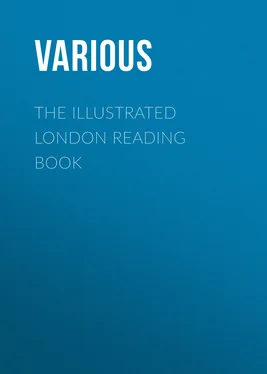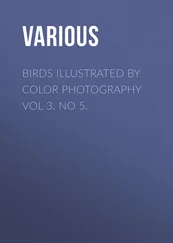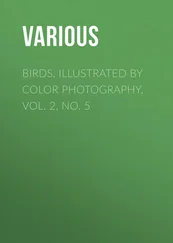Various - The Illustrated London Reading Book
Здесь есть возможность читать онлайн «Various - The Illustrated London Reading Book» — ознакомительный отрывок электронной книги совершенно бесплатно, а после прочтения отрывка купить полную версию. В некоторых случаях можно слушать аудио, скачать через торрент в формате fb2 и присутствует краткое содержание. Жанр: foreign_prose, foreign_antique, на английском языке. Описание произведения, (предисловие) а так же отзывы посетителей доступны на портале библиотеки ЛибКат.
- Название:The Illustrated London Reading Book
- Автор:
- Жанр:
- Год:неизвестен
- ISBN:нет данных
- Рейтинг книги:5 / 5. Голосов: 1
-
Избранное:Добавить в избранное
- Отзывы:
-
Ваша оценка:
- 100
- 1
- 2
- 3
- 4
- 5
The Illustrated London Reading Book: краткое содержание, описание и аннотация
Предлагаем к чтению аннотацию, описание, краткое содержание или предисловие (зависит от того, что написал сам автор книги «The Illustrated London Reading Book»). Если вы не нашли необходимую информацию о книге — напишите в комментариях, мы постараемся отыскать её.
The Illustrated London Reading Book — читать онлайн ознакомительный отрывок
Ниже представлен текст книги, разбитый по страницам. Система сохранения места последней прочитанной страницы, позволяет с удобством читать онлайн бесплатно книгу «The Illustrated London Reading Book», без необходимости каждый раз заново искать на чём Вы остановились. Поставьте закладку, и сможете в любой момент перейти на страницу, на которой закончили чтение.
Интервал:
Закладка:
If there are some few who, formed in a softer mould, view with pity the sufferings of these defenceless creatures, there is scarce one who entertains the least idea that justice or gratitude can be due to their merits or their services. The social and friendly dog is hanged without remorse, if, by barking in defence of his master's person and property, he happens unknowingly to disturb his rest; the generous horse, who has carried his ungrateful master for many years with ease and safety, worn out with age and infirmities, contracted in his service, is by him condemned to end his miserable days in a dust-cart, where the more he exerts his little remains of spirit, the more he is whipped to save his stupid driver the trouble of whipping some other less obedient to the lash. Sometimes, having been taught the practice of many unnatural and useless feats in a riding-house, he is at last turned out and consigned to the dominion of a hackney-coachman, by whom he is every day corrected for performing those tricks, which he has learned under so long and severe a discipline. The sluggish bear, in contradiction to his nature, is taught to dance for the diversion of a malignant mob, by placing red-hot irons under his feet; and the majestic bull is tortured by every mode which malice can invent, for no offence but that he is gentle and unwilling to assail his diabolical tormentors. These, with innumerable other acts of cruelty, injustice, and ingratitude, are every day committed, not only with impunity, but without censure and even without observation; but we may be assured that they cannot finally pass away unnoticed and unretaliated.
The laws of self-defence undoubtedly justify us in destroying those animals who would destroy us, who injure our properties, or annoy our persons; but not even these, whenever their situation incapacitates them from hurting us. I know of no right which we have to shoot a bear on an inaccessible island of ice, or an eagle on the mountain's top; whose lives cannot injure us, nor deaths procure us any benefit. We are unable to give life, and therefore ought not wantonly to take it away from the meanest insect, without sufficient reason; they all receive it from the same benevolent hand as ourselves, and have therefore an equal right to enjoy it.
God has been pleased to create numberless animals intended for our sustenance; and that they are so intended, the agreeable flavour of their flesh to our palates, and the wholesome nutriment which it administers to our stomachs, are sufficient proofs: these, as they are formed for our use, propagated by our culture, and fed by our care, we have certainly a right to deprive of life, because it is given and preserved to them on that condition; but this should always be performed with all the tenderness and compassion which so disagreeable an office will permit; and no circumstances ought to be omitted, which can render their executions as quick and easy as possible. For this Providence has wisely and benevolently provided, by forming them in such a manner that their flesh becomes rancid and unpalateable by a painful and lingering death; and has thus compelled us to be merciful without compassion, and cautious of their sufferings, for the sake of ourselves: but, if there are any whose tastes are so vitiated, and whose hearts are so hardened, as to delight in such inhuman sacrifices, and to partake of them without remorse, they should be looked upon as demons in human shape, and expect a retaliation of those tortures which they have inflicted on the innocent, for the gratification of their own depraved and unnatural appetites.
So violent are the passions of anger and revenge in the human breast, that it is not wonderful that men should persecute their real or imaginary enemies with cruelty and malevolence; but that there should exist in nature a being who can receive pleasure from giving pain, would be totally incredible, if we were not convinced, by melancholy experience, that there are not only many, but that this unaccountable disposition is in some manner inherent in the nature of man; for, as he cannot be taught by example, nor led to it by temptation, or prompted to it by interest, it must be derived from his native constitution; and it is a remarkable confirmation of what revelation so frequently inculcates—that he brings into the world with him an original depravity, the effects of a fallen and degenerate state; in proof of which we need only to observe, that the nearer he approaches to a state of nature, the more predominant this disposition appears, and the more violently it operates. We see children laughing at the miseries which they inflict on every unfortunate animal which comes within their power; all savages are ingenious in contriving, and happy in executing, the most exquisite tortures; and the common people of all countries are delighted with nothing so much as bull-baitings, prize-fightings, executions, and all spectacles of cruelty and horror. Though civilization may in some degree abate this native ferocity, it can never quite extirpate it; the most polished are not ashamed to be pleased with scenes of little less barbarity, and, to the disgrace of human nature, to dignify them with the name of sports. They arm cocks with artificial weapons, which nature had kindly denied to their malevolence, and with shouts of applause and triumph see them plunge them into each other's hearts; they view with delight the trembling deer and defenceless hare, flying for hours in the utmost agonies of terror and despair, and, at last, sinking under fatigue, devoured by their merciless pursuers; they see with joy the beautiful pheasant and harmless partridge drop from their flight, weltering in their blood, or, perhaps, perishing with wounds and hunger, under the cover of some friendly thicket to which they have in vain retreated for safety; they triumph over the unsuspecting fish whom they have decoyed by an insidious pretence of feeding, and drag him from his native element by a hook fixed to and tearing out his entrails; and, to add to all this, they spare neither labour nor expense to preserve and propagate these innocent animals, for no other end but to multiply the objects of their persecution.
What name would we bestow on a superior being, whose whole endeavours were employed, and whose whole pleasure consisted in terrifying, ensnaring, tormenting, and destroying mankind? whose superior faculties were exerted in fomenting animosities amongst them, in contriving engines of destruction, and inciting them to use them in maiming and murdering each other? whose power over them was employed in assisting the rapacious, deceiving the simple, and oppressing the innocent? who, without provocation or advantage, should continue from day to day, void of all pity and remorse, thus to torment mankind for diversion, and at the same time endeavour with his utmost care to preserve their lives and to propagate their species, in order to increase the number of victims devoted to his malevolence, and be delighted in proportion to the miseries he occasioned. I say, what name detestable enough could we find for such a being? yet, if we impartially consider the case, and our intermediate situation, we must acknowledge that, with regard to inferior animals, just such a being is a sportsman.
Jenyns.PETER THE HERMIT, AND THE FIRST CRUSADE
It was in Palestine itself that Peter the Hermit first conceived the grand idea of rousing the powers of Christendom to rescue the Christians of the East from the thraldom of the Mussulman, and the Sepulchre of Jesus from the rude hands of the Infidel. The subject engrossed his whole mind. Even in the visions of the night he was full of it. One dream made such an impression upon him, that he devoutly believed the Saviour of the world Himself appeared before him, and promised him aid and protection in his holy undertaking. If his zeal had ever wavered before, this was sufficient to fix it for ever.
Читать дальшеИнтервал:
Закладка:
Похожие книги на «The Illustrated London Reading Book»
Представляем Вашему вниманию похожие книги на «The Illustrated London Reading Book» списком для выбора. Мы отобрали схожую по названию и смыслу литературу в надежде предоставить читателям больше вариантов отыскать новые, интересные, ещё непрочитанные произведения.
Обсуждение, отзывы о книге «The Illustrated London Reading Book» и просто собственные мнения читателей. Оставьте ваши комментарии, напишите, что Вы думаете о произведении, его смысле или главных героях. Укажите что конкретно понравилось, а что нет, и почему Вы так считаете.












